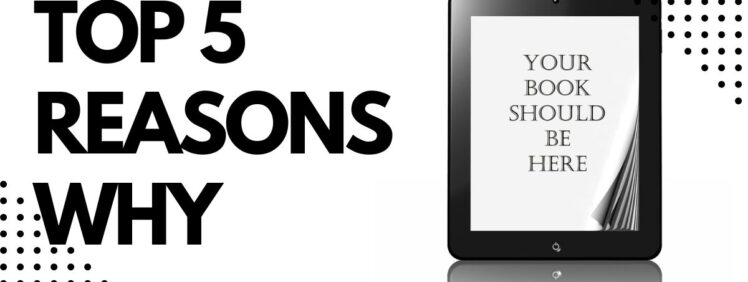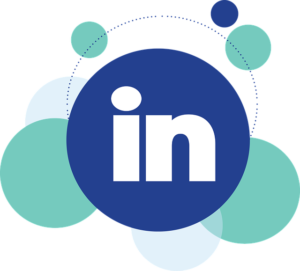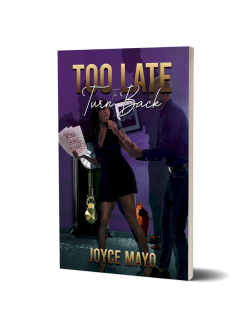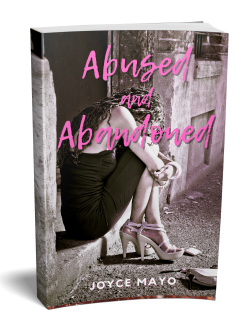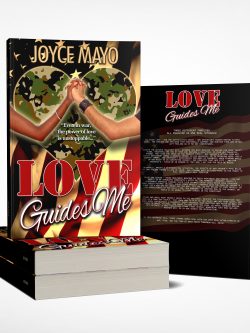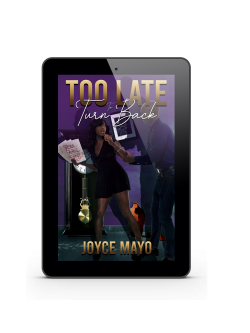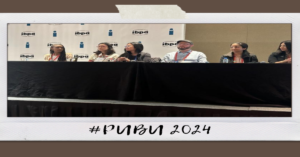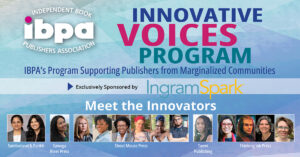Considering the explosive rise of eBook popularity, it’s unfortunate that so many authors fail to utilize this lucrative path of publishing. It’s truly the best way for an author to build a platform at little-to-no cost. Unaware of the benefits that eBook publishing carries, many authors have wasted thousands on a print run, only to wail in agony as they find themselves overwhelmed by boxes of books that aren’t selling fast enough… have errors… or are damaged. Thankfully, the eBook method of publishing has helped many authors avoid this anguish.
An eBook offers just as much publishing credibility as a print book; for that reason, this route should be explored first by new authors prior to a print run. The eBook should be used as your “soft” debut – the time when you test the market, use the eBook to increase your public speaking platform (especially for radio promotion and speaking events), and make any final changes that will be applied to the print version. The best part? By doing so, you’ll avoid wasting thousands of dollars on your first print run, while reducing the likelihood of errors in your print version.
Consider these five essential reasons to publish an eBook prior to investing thousands of dollars in a print run:
1) eBooks Are Less Expensive To Publish
A print run can easily cost thousands of dollars. If you go the super cheap route, you can crank out an amateur-looking book for less than $500, but for those who want their books done right – including marketing and promotion – costs can easily range from $3,000 – $10,000, depending on who you work with and how well you want it done. We’ve even heard of people who have paid upwards of $15,000 for the manufacturing and mass printing of their books.
The problem is that after paying those costs, you still have to sell a certain amount of those printed books in order to break even. And without a distributor working on your behalf to make bulk sales to multiple bookstores, it could take years before you start recording actual profits from sales of your print book.
You could just take the loss and try to make it up in other ways – like speaking engagements – but that still doesn’t change the fact that you just spent a lot of money and have boxes of unsold books to show for it. When you go through so much work to craft your ideas and publish them into a book, the goal is to get a return on your investment in the publishing world, and too many new authors – and even traditional publishers – unnecessarily lose thousands of dollars on their first try. And unless you’re filthy rich, no one likes to lose that much money.
How much does it cost to publish an eBook on Amazon? Zero. They just take a percentage of the royalties as the distributor, which is understandable. How much does it cost for Barnes & Noble Nook? Same price, same terms. Kobo? Same. I could go on with the list, but you get the gist of it. It doesn’t cost any money out-of-pocket to publish and sell your eBook – the challenge is creating something of professional quality that boosts your credibility and garners confidence from your fans.
Now imagine if you sell that same eBook for $5.00 on Amazon, and sell 20,000 copies. That digital venture has just become one of the best investments you’ve ever made. Why? Because now you have extra cash to devote to your print run that didn’t come out of your pocket!
 Keep more money in your hand with eBook publishing.
Keep more money in your hand with eBook publishing.
If you actually have the knowledge on how to convert a Word document into the .epub format that is accepted by Amazon, Barnes & Noble, and most online e-book distributors, then your publishing costs will be drastically reduced. More than likely, the services you’ll need to contract out are editing, possibly hiring a writer to create your synopsis, and the creation of your book cover. I also recommend that you study other eBooks to understand how to arrange the back matter (i.e. the dedications, author bio, upcoming releases, and back catalog of other titles).
If you lack the knowledge on how to convert and create an eBook file, there’s no need to fret. There are so many people out there who offer eBook conversion services that the problem isn’t finding them – it’s determining which ones are reputable and trustworthy enough to work with that can be the issue. There are certain rights and conditions you’ll want to set with the eBook conversion company you decide to work with, so make sure to read their contracts closely.
Some of the shadier companies try to use confusing contract lingo to assume some of your book rights – and a percentage of your royalties – without your knowledge. Just remember that no matter what services you contract them for, they’re not your publisher; they are merely a service provider performing a duty for you, much like the editor you hire, or the graphic designer you hire.
Once you’ve surrounded yourself with trustworthy people – a ghostwriter, an editor, a publishing consultant, an eBook converter, and a graphic designer – if you have shopped around effectively, the total cost to publish your eBook should range from $500-$2200, which really covers the payments to those service providers. The more of these individual skills you’ve mastered, the fewer service providers you’ll need to hire, and the lower your publishing costs.
2) eBooks Are Faster To Create and Publish
 In the time it takes to print one book, you can create, publish, and sell 10 times more eBooks.
In the time it takes to print one book, you can create, publish, and sell 10 times more eBooks.
When going through a mid- or large-sized publisher, it can take about 18 months for your book to hit the bookshelves. Savvy self-publishers like Peter Bowerman can do it in about six months, but novices – including emerging indie traditional publishers – generally have a higher learning curve to tackle, and it can take them up to a year to complete the process.
With eBooks, however, the publishing process is exponentially faster and benefits an author that has a lot of major press and promotional events looming. An eBook can be created in as little as 4-6 weeks with careful planning and talented people on hand. If you have interviews on television and radio, or you are participating in events that will receive major news coverage, having a professional-grade published book used to be a necessity. However, more of them are willing to accept – and even prefer – a digital version of your book. Writers who need their book published in time for promotional events can now achieve that with an eBook, and reinforce their expertise as a published author while using those interviews to drive sales.
3) Errors Found? No Problem!
An eBook offers more convenience with regards to the accessibility of your published book that cannot be achieved with a print run. Imagine this scenario: you have published your first eBook on Amazon, then excitedly download it to your Kindle or iPad to read it. As you do, you notice a spelling error and freak out.
You call the company you hired to do the eBook conversion and explain that your editor missed something, then ask if there’s anything they can do to help you. If they’re more customer service driven, they’ll probably reply, “Sure, we can pull your file from Amazon and edit it, then republish the corrected version.” If they’re more profit-driven, then they probably have a stipulation that says they will only do a certain amount of corrections and the rest of the maintenance is up to you.
The thing is, you’ll probably need to have multiple alterations done to the file depending on which platform or e-reader it is being displayed on. In our opinion, if you have the knowledge on how to update ebook files yourself, you can save yourself a lot of time, money, and heartache. This is why we recommend signing up for our upcoming “Understanding EPUB Files 101” class, where you’ll learn simple techniques to confidently fix your files and re-upload them yourself.
When it comes to finding errors and wanting to perform immediate corrections, you can’t do that with a print book. If you find errors, you have two choices. You can sell it as-is and more than likely at a major discount, or you can send it back to the printers, push back your release date, and spend several months trying all over again. One of the advantages of an eBook is that the file is always at your fingertips, and you can pull it repeatedly from online retailers and edit it as needed.
4) You Can Gather Feedback and Conduct Beta-Reads Easier
Let’s say you’ve written this incredibly deep, entrancing supernatural fantasy; one that requires the building of an entirely new universe, with all kinds of crazy new laws of nature, and words that people don’t know. After publishing it on Amazon and Nook, you start receiving feedback that the readers were confused about some of the jargon used and suggested that a dictionary of terms at the front would have helped them. Some of them even admitted to putting it down because they couldn’t figure out the language. You ask them, “If there was a dictionary or something explaining all of that in the beginning, would you have kept reading?”
When they answer in the affirmative, you slap yourself on the head and think to yourself, ‘Duh! I’m such an idiot! Of course, they would need some kind of clarification!’
Thank goodness you were able to catch this in time. What if you’d gotten this feedback after the first print run had already happened, and you’d already invested $8,000 in publishing costs? You would not have been able to make the necessary corrections until the second print run, your debut would suffer, and so would your sales.
Thankfully, because you went the eBook route, you have time to write up the dictionary, talk with your editor and eBook converters to explain where it needs to be placed, and they launch a quick project to re-upload the corrected file in two weeks. Meanwhile, you can start an online campaign about the re-launch of the book with added new features. When the enhanced version is released, you’ll have a good chance at more sales because of your marketing and promotional efforts.
 Feedback from focus groups and beta readers is a vital part of improving your book before you pay for a print run.
Feedback from focus groups and beta readers is a vital part of improving your book before you pay for a print run.
5) Your First Print Run Will Be Flawless
This story happens time and time again: the wide-eyed hopeful author puts in months of work, thousands of dollars, and hours of dedication to produce the best possible book. After about twelve months of work, you go to the warehouse to inspect the books, only to open box after box and find thousands of misprinted books.
Whether you self-publish, go through a small publisher, or have a large publisher, your print debut has to be flawless – this is the version of your work that will be displayed prominently in bookstores, and it must free of typing errors, show properly aligned typesetting, and cannot have a mediocre book cover. The typos alone are enough to drive any reader crazy. Any issues with your manuscript should be corrected in the eBook phase.
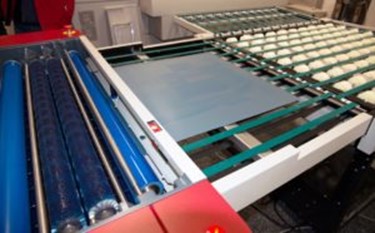 Professional print runs are more complex – and expensive – than most know. You want to make sure your book comes out perfect.
Professional print runs are more complex – and expensive – than most know. You want to make sure your book comes out perfect.
Believe it or not, thousands of authors experience this heartache. They put their all into the production of their book, and those “little errors” appear gigantic. It seems like those mistakes stand out in the book like giant billboards. As you look at the “d” that should be an “r”, or the repeated “and” in the sentence, you feel your credibility as an author lessen.
That’s both heartbreaking and frightening. Now you’ve got boxes and boxes of misprinted books, a release date that is two weeks away, and no money to make the necessary changes. Fixing the books is out of the question, as you no longer have the time. Not to mention, the second print run was dependent on the profits you made from this one, so forking out another $10-12,000 is out of the question.
How could this have been avoided? The eBook route, of course. Remember, this is your soft debut. Your appearance in print is your official debut to the world, and the date every publisher and editor keeps in mind when planning promotion and marketing strategies. When your print book debuts, it must… look… professional. Take it from a publishing company that just wants to see you win as a writer. We understand that mistakes happen but still, we cringe when we see an error in something we ourselves have written. That is why we always recommend the eBook path first. The eBook version is your last chance to fix any mistakes your book may have, and your final shot at a flawless first print run.
Your Path, Your Choice
Whether or not you choose to publish an eBook first, at least have enough information about both paths before you make your decision. Perhaps you already have a platform of 25,000 followers, have regular speaking engagements booked nationwide, and feel confident that you could sell 5,000 copies in six months. If that is the case, a print run would be to your benefit. However, if you don’t have that kind of popularity and reach yet, you should keep your publishing costs as low as possible with an eBook.
Use the eBook as your opportunity to perfect your book. On average, about 60 percent of books are released with noticeable errors; however, print books with errors are held to a higher standard and dismissed faster than eBooks. While you do want your eBook to look its absolute best, errors won’t kill it, and corrections won’t take away from your credibility because you’ll always have the option to keep perfecting the digital version.
Meanwhile, your expertise as a published author will steadily increase, while your growing online fan base can excitedly watch and support as your book evolves from digital to print. The added bonus? Your followers will help promote your print book. They will feel more invested in the project because they were a part of the process from beginning to end. So my advice to all of the authors out who want to get the highest return on their investment? Get out there and make this eBook revolution work in your favor.
What are your thoughts on eBooks being published before print books? Share your thoughts, share this info, and leave a comment!
